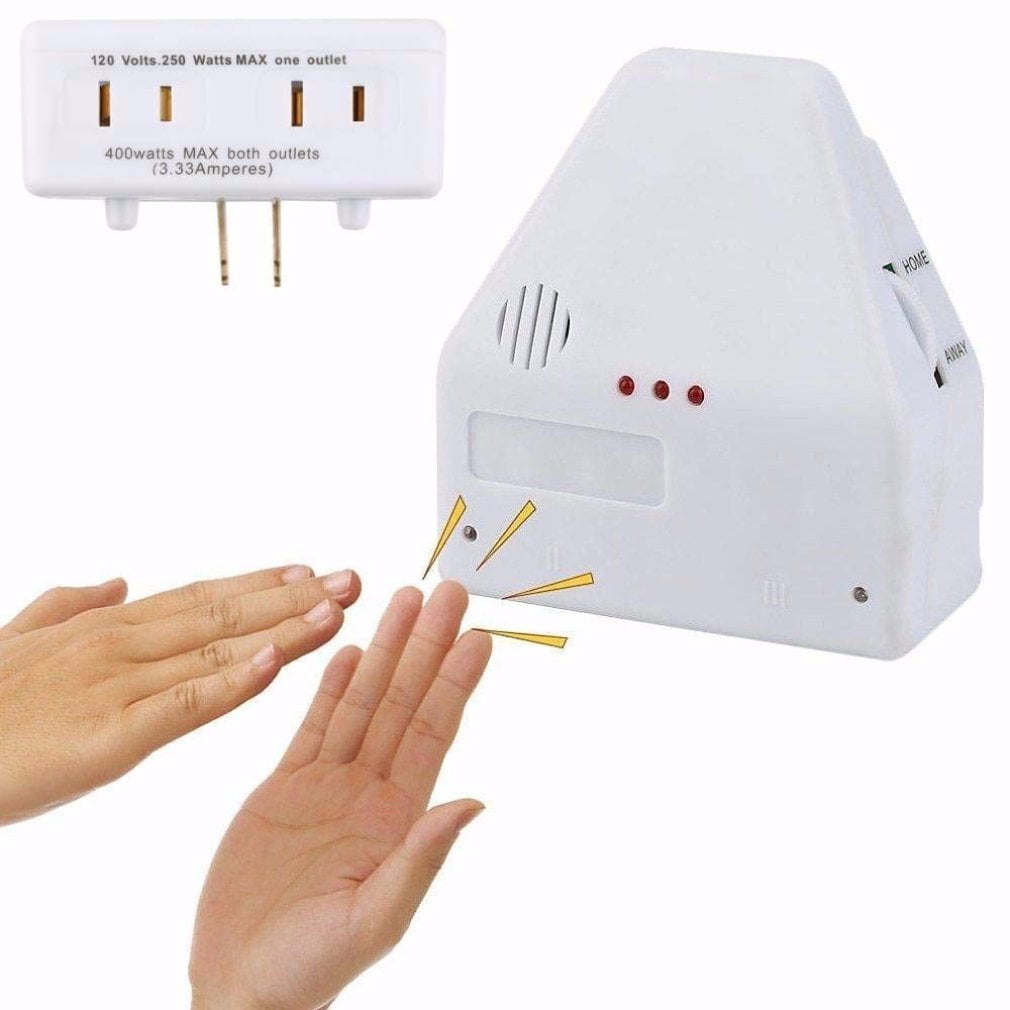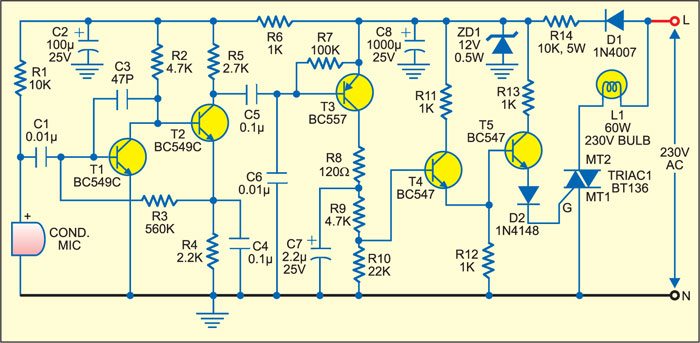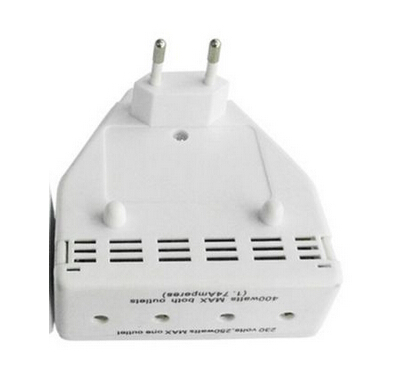
Whenever the signal (peak) is above the average in the array the light comes-on and whenever it's below average, it's off.

I've done several sound activated lighting effects** and none of them have dimming - For example, the "world's simplest lighting effect" finds the peak 10 times per second, and once per second it saves the peak in a 20-element (20-second) moving-average array. Relays are electrically isolated and The industrial kind with screw terminals is super-easy to wire-up and fairly safe as long as you don't mix-up the AC & DC terminals or touch the AC connections.

If you can skip the dimming, you can use a Solid State Relay on the output. That means you "flicker" it dimly by pulsing it infrequently. Incandescent lamps (including halogens) don't switch-on instantly. I suggest you skip the dimming, at least for your first-pass at this project. This is all possible, and I've done it a long time ago with a different microcontroller, but it's not "easy" and it's not really a beginner project. The zero-crossing sensor, as well as the TRIAC, has to be electrically isolated (typically optically isolated) from the low-voltage microcontroller. That means you need to sense the zero-crossing and synchronize the TRIAC triggering to the AC cycle. The reason for that is that TRIACs (used for controlling/switching power) don't shut-off until current falls to zero at the next zero crossing. An AC light dimmer works by turning-on the lamp for part of the 50/60Hz AC cycle. There is one tricky thing about your project description. On the input-side you can get a microphone board that has a microphone, preamp, and the required biased-output.* (This particular microphone board doesn't have a gain control and that can be an issue.) I thank you a lot for your attention and patience. Should I give up this idea and do this thing in a very simple way, or is it possible for a total noobie like me to build this project with a little help and instructions? I ask you to be honest and/or just helpful! Since I've never done anything like this, I only know simple soldering, have basic knowledge of electricity, and I don't know a thing about electronics or arduino code. This will be installed outdoors, probably hung on a tree, exposed to dust and maybe a little water. The goal is to build a safe and reliable interactive/reactive/dynamic lighting object for a Music Festival.

the bulbs discretely alternate from low to medium intensity, but never totally off.
#Sound operated switch for lamps full


 0 kommentar(er)
0 kommentar(er)
